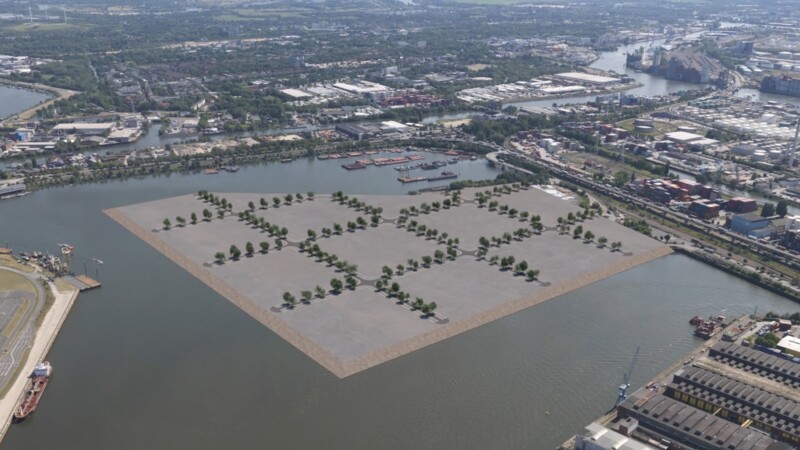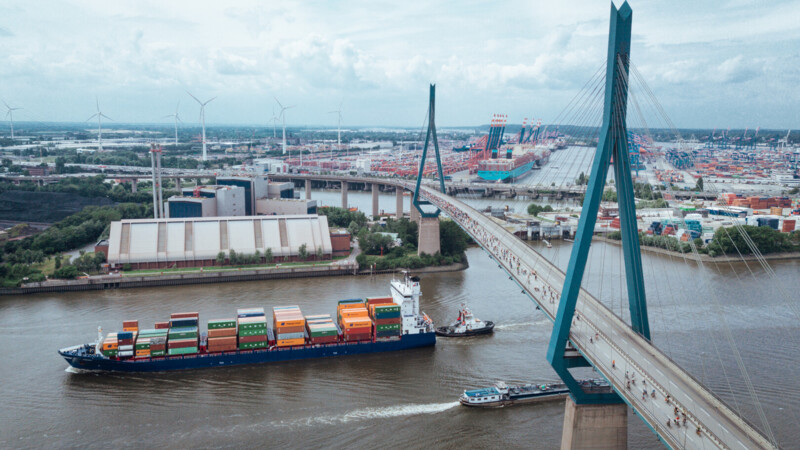"The Elbe is a transport axis that facilitates environment-friendly transport between the Czech Republic and the North Sea. In view of its economic importance for Hamburg and all regions connected via the Elbe, the waterway and its potential must be preserved and developed," said Andreas Rieckhof, State Councillor in the Ministry of Economics and Innovation. The opportunities offered by inland waterways to transport freight are particularly evident in bulk goods, cargo and containers. Waterborne transport relieves the pressure on roads and railways, consumes less energy and emits far fewer pollutants than lorries and trains. However, more investment is needed in the maintenance and development of waterways, Rieckhof stressed.
Experts and political representatives met Wednesday (20 November) at the "Inland Waterway Transport – Rescuer of the Climate - Shaping Opportunities and Solutions" conference to mull the use of the River Elbe as an ecological means of transport and as a driver of the energy transition. Delegates at the conference, organised by Hafen Hamburg Marketing, Brunsbüttel Ports and Sächsische Binnenhäfen Oberelbe GmbH, see the Elbe as a link between the major port cities, a gateway to the North Sea and a bridge to Central Europe.
Inland shipping advancing climate-friendly logistics
More reliability needed for navigability
"Greater reliability is the basic prerequisite for more transport and shipping space and for navigating the Elbe. That means removing the usual bottlenecks, especially on the remaining stretch of the river," says Axel Mattern, CEO of Port of Hamburg Marketing. Low water levels and structural bottlenecks make it difficult to use the waterway. A new agreement with the Czech Republic on the navigability of the Elbe has indicated keen interest in increased use of the waterway.
Maritime and inland shipping crucial for Germany
"Maritime and inland shipping are crucially important for Germany as an industrial centre. The ports on the Elbe also contribute to this," said Dieter Janecek, the German government's Coordinator for the Maritime Sector Economy and Tourism. "The new ammonia terminal in Brunsbüttel and other projects for handling of ammonia and carbon dioxide are important guarantors of the energy transition." The Port of Hamburg plays a key role as a real-life laboratory for forward-looking technologies and as a logistics hub for all kinds of goods. The current focus is on the electrification of freight transport to lower emissions.
fw/mm/pb
Sources and further information
More
Similar articles

Port of Hamburg proving logistics hub and real innovation lab

Port of Hamburg pushing electrification of freight transport

HHLA and Port of Braunschweig seal strategic partnership
